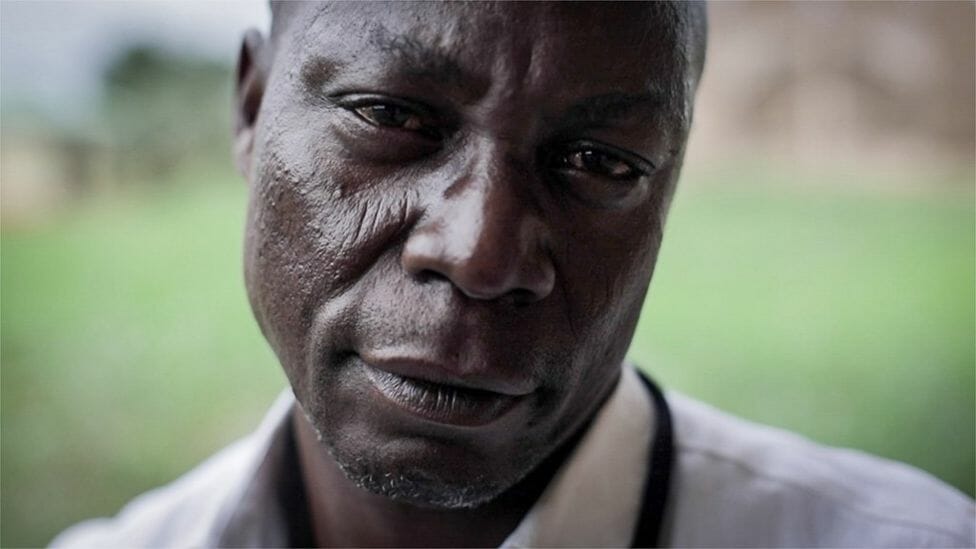During quiet moments, after he has finished lecturing for the day, Dr John Stone has flashbacks. It’s not the blood or the sound of the gunshots that haunt him. It’s the begging. The way people beg for mercy when they die. Begging him. Begging God.
“It’s so painful,” he says, shaking his head with a shudder. “The families of the dead, they will curse you. A curse will be upon your life.”

Dr Stone teaches political science at the University of Benin, in south-east Nigeria. But for decades he was a senior member of Black Axe – a Nigerian mafia-style gang tied to human trafficking, internet fraud and murder. Locally, Black Axe are referred to as a “cult,” a nod to their secret initiation rituals and the intense loyalty of their members. They are also infamous for extreme violence. Images of those who cross their path – dead bodies mutilated or showing signs of torture – regularly surface on Nigerian social media.
Dr Stone admits he took part in atrocities during his years as an “Axeman”. At one point during our interview, recalling the most efficient means of killing, he leaned forward, squeezed his fingers into the shape of a gun and pushed them to the forehead of our producer. In Benin City, he was known as “a butcher”.
The horror of these years has scarred him. Today, Dr Stone is remorseful for his past and a vocal critic of the gang he once served. He is one of a dozen Black Axe sources who have decided to break their oaths of silence and reveal their secrets to the BBC, speaking to international media for the first time.
For two years BBC Africa Eye has been investigating Black Axe, building a network of whistle-blowers, and uncovering several thousand secret documents – leaked from the gang’s private communications. The findings suggest that over the past decade, Black Axe has become one of the most far-reaching and dangerous organised crime groups in the world.
Dr Stone says many Axemen join solely for networking purposes. Nigeria has the second highest rate of unemployment in the world, and within this challenging environment, he says joining Black Axe can provide protection and business connections. He claims not all members are criminals.
“We have members in the Nigerian army, navy, air force. We have those in academia. We have priests, pastors,” he said.
Dr Stone claims Black Axe and the NBM – beneath the surface – are the same organisation. He is speaking from experience. He was not only a member of Black Axe, but also a chairman within the NBM in their heartland of Benin City.
The NBM has successfully established itself as a global brand, in multiple countries. In Nigeria, Dr Stone claims, the network’s influence extends to the political sphere.
“There are a lot of members in the House of Assembly, even the executive,” he said. “That is what Black Axe is. That is what NBM preaches: veer into any position that you know is humanly possible.”
Dr Stone believes Nigerian law enforcement and politicians are too enmeshed with Black Axe to effectively combat them. The solution to the violence, he says, lies within the cult itself. He is not the only former member who feels the group have become too dangerous. \
In a bid to harness this push for change, Dr Stone has formed what he calls a “Rainbow Coalition” – an advocacy group made up of former cultists, influential Nigerian citizens and professors. Members try to de-escalate tensions when rival gangs clash, and are trying to steer Black Axe towards a more peaceful future.
“Rainbow’s contribution to society is to reduce criminality,” he says. “To reduce the rate of death among youths. To reduce the rate of widows and orphans.” Rainbow’s co-founder, Chukwuka Omessah, wants Black Axe members to reflect on the society they are creating.
“Everyone has a conscience,” he says. “You may deny it on camera, deny it during public, but you cannot deny it in your quiet time – it will haunt you.”
Dr Stone knows that pushing Black Axe towards reform is a dangerous business. He knows his former comrades might come for him one day. He is ready for them if they do. The professor keeps a three feet-long sword hidden in his car, and a licensed shot gun at home.
“For personal guard, personal safety,” he says, with a half-smile. “If they come after me, can’t I also come after them?”